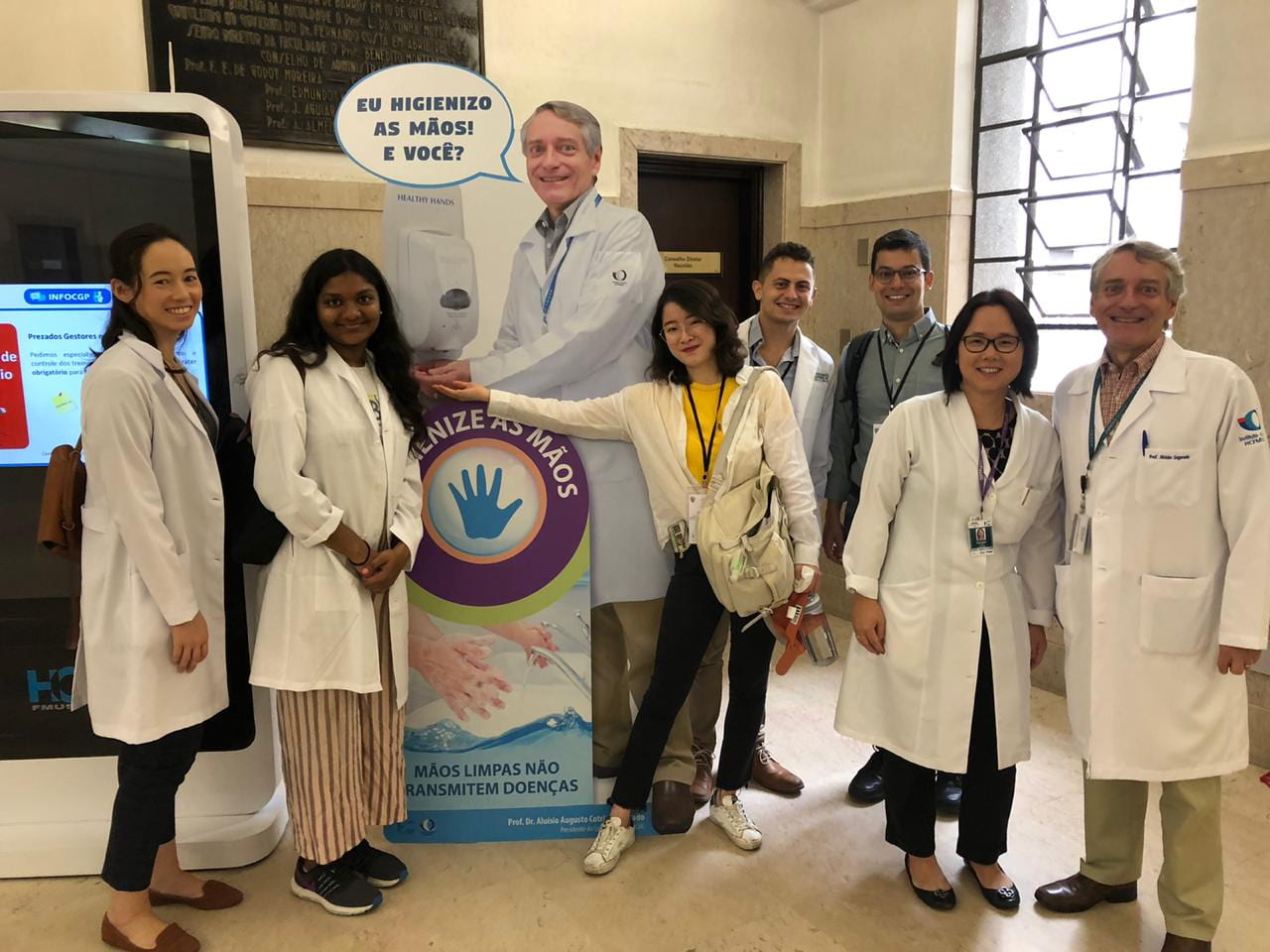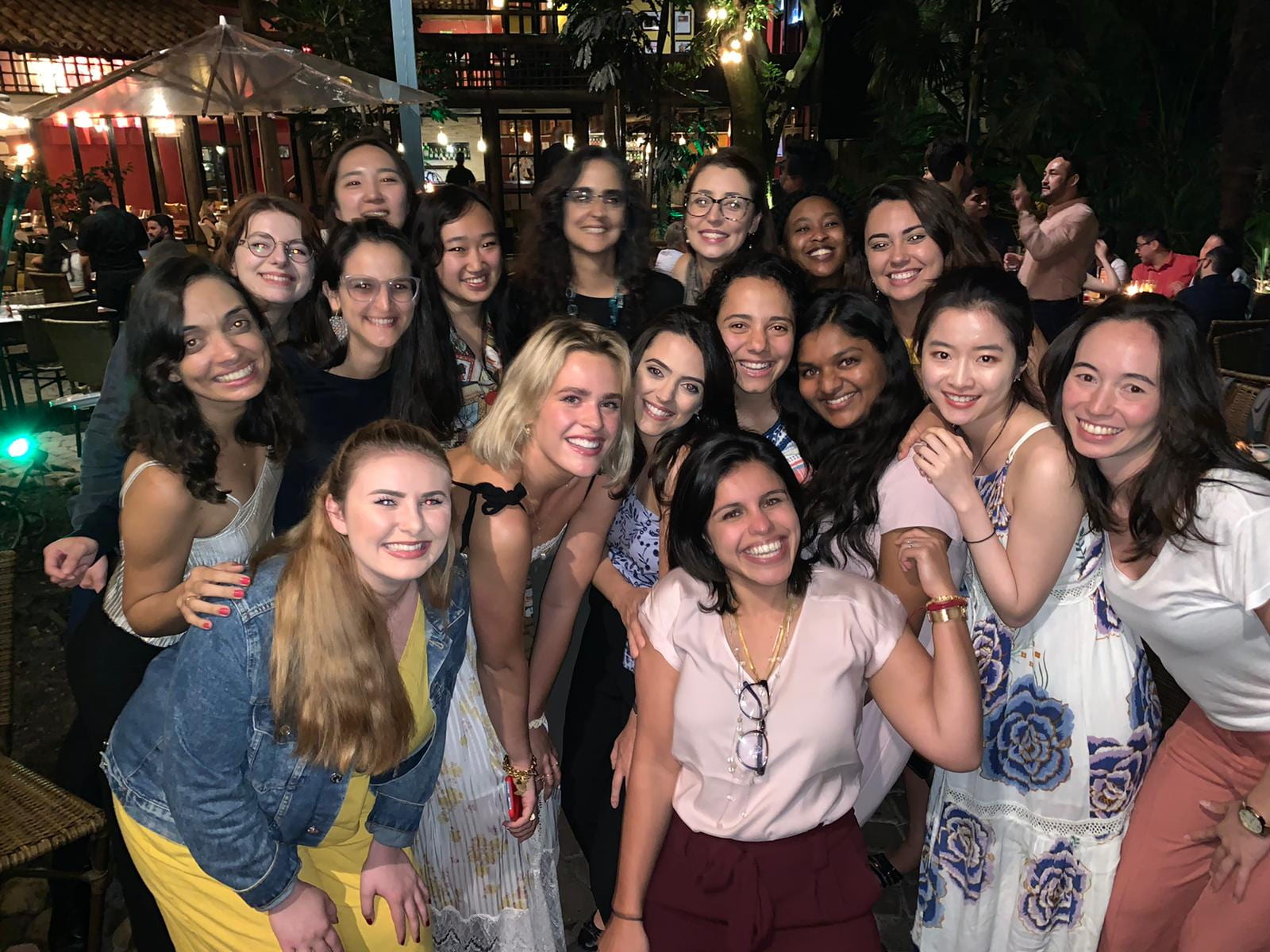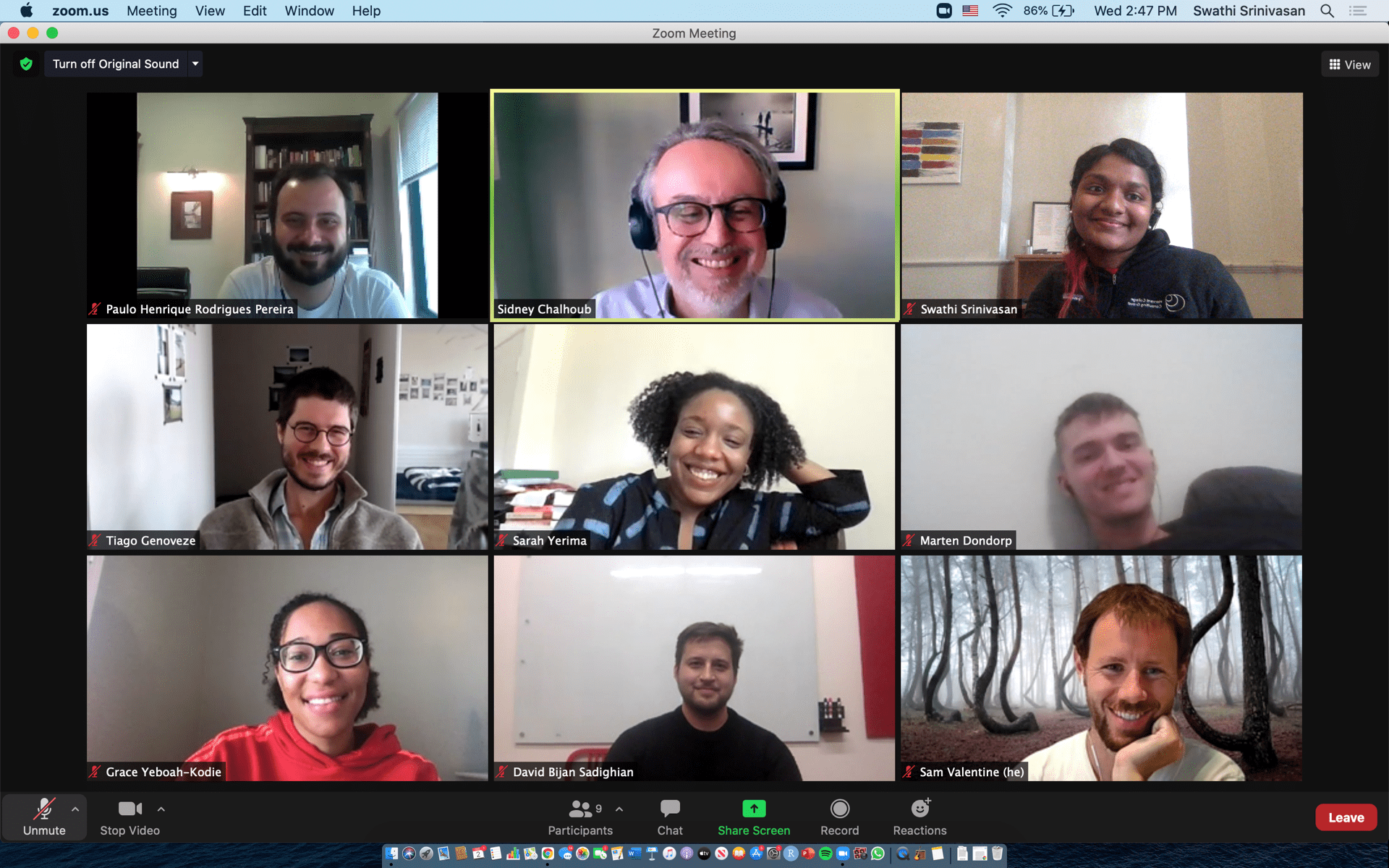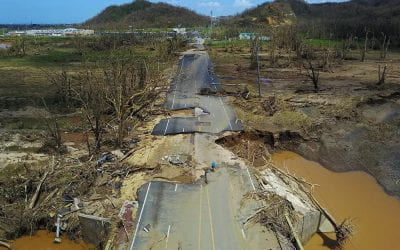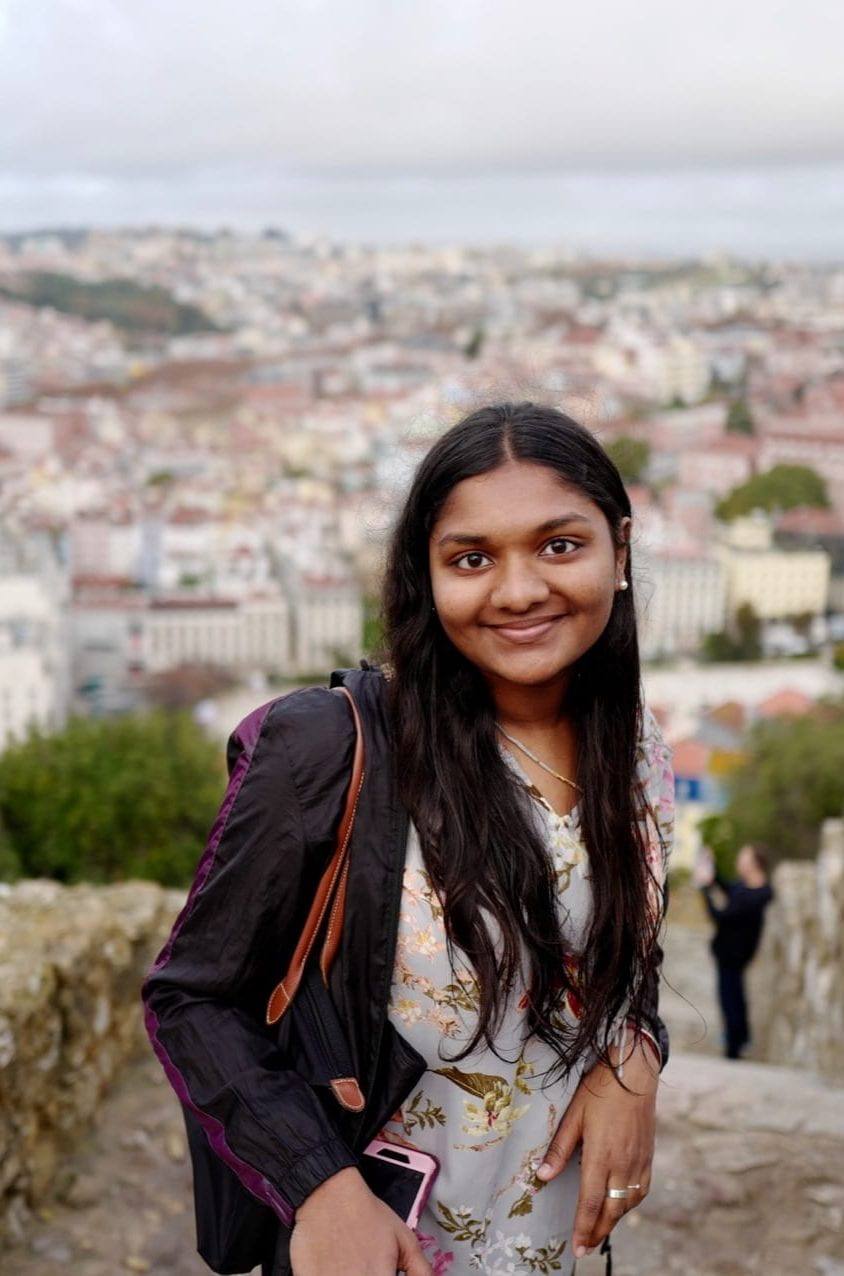
About the Author
Swathi Srinivasan is a senior at Harvard College with double concentrations in Social Studies and History of Science, with a focus on public health inequality. She has conducted public health research on the opioid epidemic, HIV/AIDS, and Covid-19 in England, Portugal, Brazil, Massachusetts and her home state of Ohio. She is currently writing two senior theses; one on the impact of inequality on Covid-19 outcomes in Brazil, and the other on the synthesis of an improved chemotherapy regimen for Hodgkin’s Lymphoma, and she intends to pursue both international health and public policy at Oxford.
Health as a Human Right
Lessons from Brazil
I began the year 2020 on the eighth floor of Boston’s Dana-Farber Cancer Institute, in the first of many future visits with my oncologist. Though I had received a lymphoma diagnosis just before Christmas, a few days later, on January 4th, I sat in a dorm room at the University of São Paulo, chatting about the Brazilian voting system with my roommate from Lavras—Milena. Though I imagine that many people in my health situation might have rightfully shied away from delaying chemotherapy even just for one extra week longer, I was determined to attend Professor Marcia Castro’s January-term field course on public health in Brazil. Thankfully, after a half hour of back-and-forth phone calls between my parents and the oncologist, I was off to pack for the trip. I had a feeling something special was waiting for me in São Paulo.
My first explorations of São Paulo began with brigadeiros, delectable truffles made from chocolate, condensed milk and butter. They set the bar high. However, quickly my expectations were surpassed (even beyond the brigadeiros!) by my classmates in the three-week course. Over early-morning coffee and pão de queijo, I was enamored by their kindness, empathy and passion for advocating for health as a human right—specifically for defending Brazil’s universal health system, SUS. Our classroom was composed of 15 students from various Harvard schools and 15 students from across Brazil, including state-level policymakers, infectious disease physicians, nutritionists, economics concentrators and beyond. Alongside the inimitable Prof. Castro and a team of course leaders from across São Paulo, we learned from and with one another. We completed projects in teams designated to specific topics ranging from dengue to child developmentand learned about the impressive feats SUS had achieved under earlier progressive federal governments. In line with my prior work at UNAIDS, I joined the HIV/AIDS team, working alongside five peers to develop a distribution proposal for the HIV prevention medication, PrEP. We interviewed coletivo community leaders, healthcare professionals and state policymakers across São Paulo in order to draft an implementable proposal.
Coming from the United States—a country that has struggled to implement Medicare, let alone Medicare for All—the concept and implementation of a universal healthcare system was enchanting. I was captivated by Brazil’s statement in its 1988 Constitution that said “health is a right of all.” There was so much to be learned from Brazil, just as Brazil had learned from the National Health System in England during the early days of SUS. To date, SUS is the largest universal healthcare system in the world yet, prior to the class, I’d never heard of it. This helped me to realize the importance of comparative approaches to global health, particularly what we all stand to learn from how various countries approach rather similar medical problems. Through SUS, Brazil implemented innovative policies and medical initiatives that appeared to mitigate the country’s HIV/AIDS epidemic, maintaining its HIV prevalence rate at 1%, while South Africa’s increased from 1% to 25% percent in the same ten-year timespan. I spent the following spring semester working with Prof. Castro to better understand this phenomenon and the nuances that led Brazil to succeed in handling the HIV/AIDS epidemic and soon be globally lauded for its approach.
The extent to which the country has actually made true on the declaration that “health is a right of all” soon became the topic of my thesis. To this day, antiretrovirals are free for all Brazilians, in addition to a variety of medications and services. However, in his work Will to Live, scholar João Biehl contends that perhaps even a great system that supposedly mitigated one of the most prolific epidemics of all time has neglected certain people in its response, including members of key populations and vulnerable communities. For example, though less than 1% of Brazil’s adult population is HIV-positive, more than 10% of men who have sex with men are HIV-positive. I figured that this discrepancy would be central to my thesis—the history of inequality in national and international AIDS response. With funding from DRCLAS, the proposal was set; I’d spend a few weeks in São Paulo and Rio de Janeiro, interviewing researchers and exploring archives at local universities. To prepare, I immersed myself in DRCLAS events, attending talks with policymakers and scholars. I joined my Portuguese class in singing Brazilian pop karaoke over glasses of guarana and plates of coxinha. I even learned how to hand-make brigadeiros without burning myself, my classmates or the chocolate! These engaging events were a wonderful respite from chemotherapy, which had started taking a toll on my body yet was hardly on my mind.
However, as with everyone, the pandemic forced a shift in my priorities. I looked inwards, spending more time in bed than outside as I adjusted to radiation and isolation. My thesis plans—dependent on archives and site visits—became obsolete. Covid-19 began to ravage the world, and field research was no longer possible. Times had changed. Meanwhile, Brazil climbed to the third-highest number of Covid-19 cases and deaths in the world. Just like in the United States, low-income communities of color died in greater numbers compared to higher-income white counterparts. Thus, soon after the onset of the pandemic, I shifted my thesis research from HIV/AIDS to evaluate the extent to which identity and inequality impact Covid-19 response in Brazil, and the impact of this health (non)response on ever-growing inequality.
To explore this question, I began the summer as a research assistant for a PhD candidate in the Government Department Jessie Bullock, working to learn quantitative methods through data cleaning and analysis of socioeconomic data on the impact of President Jair Bolsonaro’s election on crime in Rio de Janeiro. Despite never having met in person, we spent the summer on Zoom discussing race and class structures, the socioeconomics of crime in favelas, and the changing political scene in Brazil. As Bullock patiently taught me various quantitative social science methods, I worked with my thesis advisors—Professors Castro, Gabriela Soto Laveaga and David Williams—to craft a survey for release in São Paulo. With help from classmates, professors and friends in Facebook groups, WhatsApp chats and across São Paulo, I was able to garner nearly 500 survey responses remotely! I even conducted remote interviews over Zoom, with my newly-learned Portuguese (all thanks to Professora Analia, Professora Mariya, and Professor Joao Marcos). My respondents revealed the range of lived experiences in Brazil, especially across the country’s unique socioeconomic spectrum.
As my survey and interview data explored the current socioeconomic determinants of health, I also aimed to understand the history of present-day dynamics. I audited the first few weeks of the class Bullock was helping teach—Professor Fran Hagopian’s class on the Politics of Brazil. They began with the early history of Brazilian slavery, which was particularly topical to me, as many of the lowest-income areas of Brazil are largely communities of color, likely as a relic of slavery. Harvard—being Harvard—offered a class on this exact subject, a wonderful seminar in the History department taught by Professor Sidney Chalhoub on slavery, disease and race in colonial Brazil. Our Zoom lectures explored early systems of slavery and their impact on both enslaved and freed communities, as well as policies of conditional manumission and branqueamento—miscegenation efforts to “whiten” Brazil’s population. Prof. Chalhoub emphasized the precariousness of freedom, a concept that led to frequent discussions on unresolved socioeconomic tensions—tensions deeply embedded in the country’s soil by the very nature of how Brazilian society is organized.
My joint concentration in History of Science and Social Studies, in addition to my focus field on public health inequality in Latin America, led me not only to aim to understand such historical underpinnings of present-day inequalities, but also to work to remedy them. Though inequalities are embedded within history and policy, perhaps they can be rewritten. Perhaps the words Frederick Douglass once averred ring true—“what man can make, man can unmake.” This is central to what I hope to study at Oxford this coming year—the intersection of international health and public policy. With classmates and professors from across the globe, I am eager to engage in the question as to how we ought to hold ourselves and our governments accountable to addressing inequality when health crises are seemingly “over.” When the Bolsonaros and Trumps of the world are no longer in power and Covid-19 seems like a distant memory, we must continue to question and dismantle long-standing systems of inequality that appear so blatantly during crises yet too often go unaddressed when no longer in the public eye. We must not lose interest in addressing crises when they likely still maintain strongholds on vulnerable communities. This is true of the present pandemic, the HIV/AIDS epidemic, the opioid epidemic and many other health crises.
If well-funded and prioritized, SUS and Brazil have the ability to lead the world in equitable public health response. The scholars, healthcare workers, students and friends I have had the privilege to learn from replenish my hope that this may once again be true, and that the global tides of justice will turn toward human rights. I cannot wait for the moment I may return to São Paulo and thank them in-person—over a plate of brigadeiros of course.
More Student Views
Climbing the Tepozteco: Meditations on Mexico
English + Español
With sweat trickling down my forehead, I meditated on the question: What does motivation look like?
Cultivating Resilience in Puerto Rico: Harvesting Fields of Change
As a born and raised Puerto Rican, my journey has always been intertwined with my homeland’s vibrant hues and resilient spirit.
Los Vuelos de La Muerte: Forced Disappearance in Mexico
The first time I heard the word desaparecido—disappeared, a missing person— was in my high school Spanish class as we learned about the Dirty War in Argentina.

